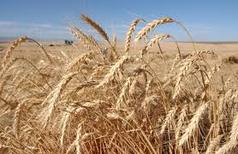In 2008, Qatar launched a program to build 1,400 farms with the very best technology available to conserve water and power. This program was started shortly after the last world food crisis in 2007-8. It aims to ensure that when the next food crisis hits, Qatar will not be beholden to the outside, and its people will not starve. This year sees the scheduled completion of these 1,400 farms and in five more years the country plans to produce enough food to buffer any future food crisis.
Meanwhile, in BC
Canada, on a per capita basis, is not as rich as Qatar. We do not possess the funding or the will to act on the level of the Qatari government to assure our food sovereignty. Luckily, we are a major exporter of grains to nations like Qatar. Unluckily for those of us in BC, we are an importer of nearly everything else. The Interior supplies BC and world markets with seasonal goods, but much of our agriculture is meant for export, not for a balanced domestic food system. This leaves us, in this land of plenty, vulnerable to a food crisis.
Up and up
With food prices in BC on the rise, acting now to create local sustainable food systems is imperative. The Dieticians of Canada report on food prices in BC shows a 21% increase in food costs in the last five years. And it is set to go higher. Do you remember what you had to pay for a loaf of bread five years ago compared to today? There is a significant difference, of at least 25%, according to the US Bureau of Labour Statistics.
Something for a rainy day
The average resident of BC has no control over the market forces boosting food prices. We don’t control droughts or oil prices. What the average resident does potentially influence is local land use. Through municipal and city councils, we can determine the best use of our land and ensure that some is set aside to shore up our vulnerabilities. Support for local community gardens is another way we can become involved in food security.
A billion reasons
Building a strong food system isn’t only a good plan when it comes to our long-term independence from crisis; it also makes economic sense. Not everyone drives or travels, or engages in any specific activity, but everyone eats. We make decisions everyday about food and our food system. What you choose to eat and where you choose to eat it has a real economic impact. There are about 4.5 million people in BC alone. They make about 13.5 million food choices every day. That’s 4.9 billion choices about food every year in our province alone. Anything multiplied by 4.9 billion is a big number. It is also estimated that 1 in 5 jobs has something to do with food. Those jobs could be farming, cooking or delivering food, or even building the pots and pans we use to cook. If 4.9 billion decisions a year wasn’t a big enough impact to consider, surely 1 in 5 jobs is. This is simply too big and too important an issue to ignore. Depending on the good will of food exporting nations isn’t sound business either. Recall the example at the beginning of this article and know that a country faced with its own people starving will not help out another, no matter how much money is involved. It’s up to us to act and provide for ourselves.
If you are interested in learning more about community gardens in your area, home gardening or local land use, email your questions to [email protected] or drop by the CEED Centre.
Some references for the information presented above
http://www.theguardian.com/environment/2012/nov/24/growing-food-in-the-desert-crisis
http://www.qnfsp.gov.qa/issue/global-food-crisis
http://www.gulf-times.com/qatar/178/details/349244/%E2%80%98strategic-storage-ideal-for-qatar-to-meet-food-security%E2%80%99
Submitted by Richard

 RSS Feed
RSS Feed
